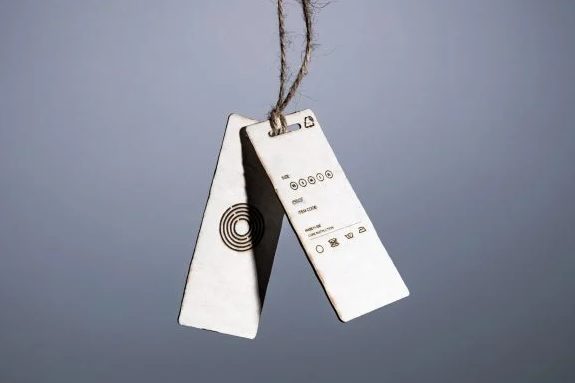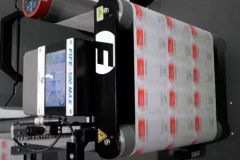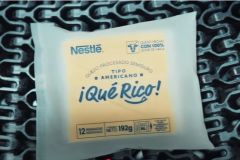The textile industry has a huge demand for radio frequency identification (RFID) tags. Four young graduates from London's Royal College of Art have developed a label using the same technology, but made entirely of paper. This RFID tag can be recycled like any other paper.
RFIDs are integrated into clothing price tags. They enable inventory management, prevent theft and facilitate checkout. Equipped with an electronic chip and a metal antenna, they require a lot of resources, such as nickel, aluminum, silicon and even gold. According to IDTechEx, 39.3 billion RFID tags will be sold in 2023, 20% more than in 2022.
This figure is all the more worrying given that the average consumer, unaware of the technology used, happily throws these labels in the garbage can.
To meet this environmental challenge, the four graduates, Barna Soma Biro, Rui Ma, Chloe So and Jingyan Chen, founded the company Pulpa Tronics. Their label performs the same functions as today's RFID, but contains no metal or chips. Paper and only paper! A process is used to laser a conductive circuit directly onto the paper, and the coded information is stored in a geometric pattern.
According to the founders of the London-based start-up, the use of these labels would cut carbon dioxide emissions by 70% and halve manufacturing costs.
The paper RFID tag would have performed as well as a copper-based chip. "We are currently still in the early stages of product development" explains Pulpa Tronics, which is continuing its R&D. " We'll be looking for pilot brands for next year!"
Finnish-Swedish papermaker In 2018, Stora Enso announced an RFID tag technology called Eco, similar. Today, the web page presenting this paper label is no longer active.










